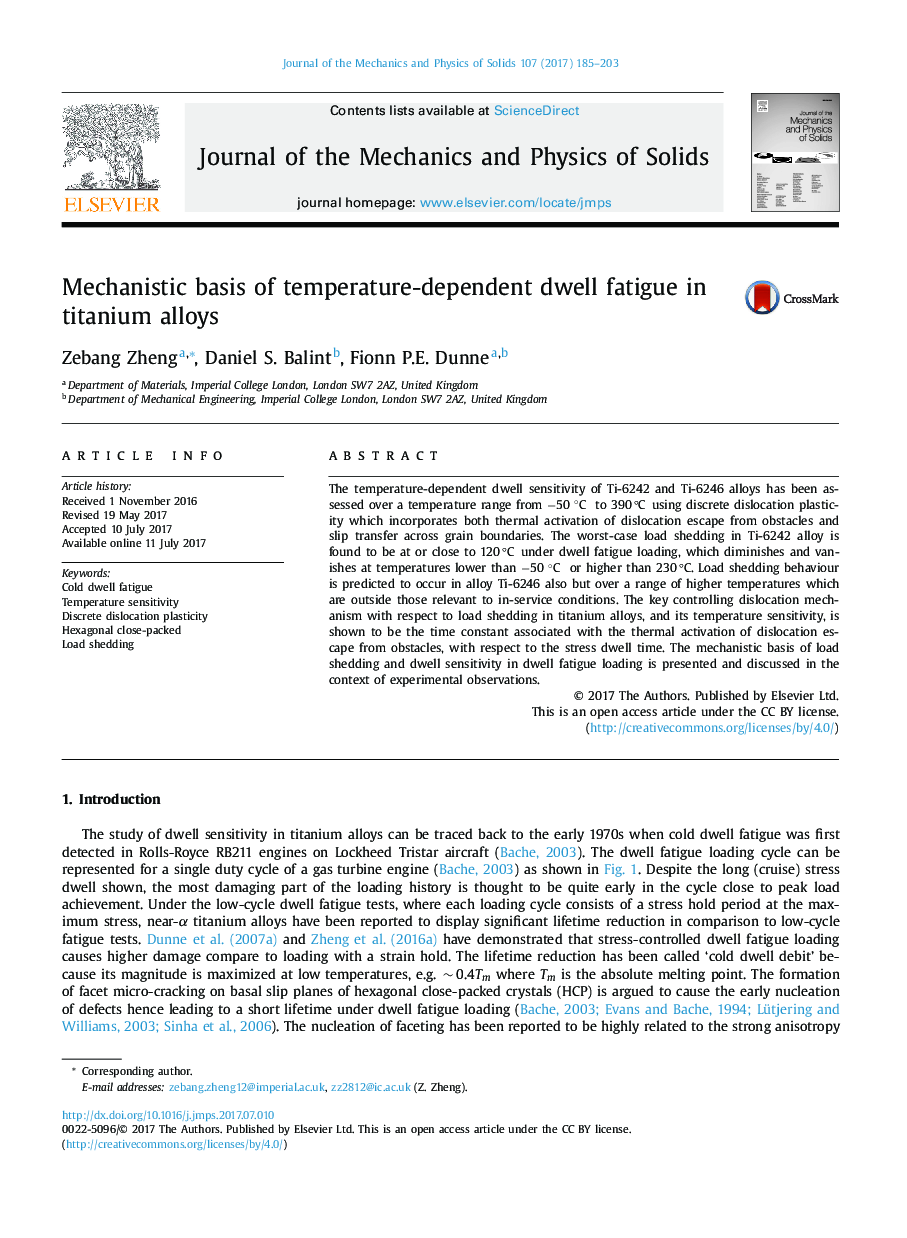| Article ID | Journal | Published Year | Pages | File Type |
|---|---|---|---|---|
| 5018172 | Journal of the Mechanics and Physics of Solids | 2017 | 19 Pages |
â¢The temperature-dependent dwell sensitivity of Ti-624x alloys has been assessed.â¢The controlling mechanism is the thermally activated dislocation escape time.â¢The mechanistic basis of load shedding and dwell sensitivity is presented.
The temperature-dependent dwell sensitivity of Ti-6242 and Ti-6246 alloys has been assessed over a temperature range from â50âC to 390â¯Â°Câ using discrete dislocation plasticity which incorporates both thermal activation of dislocation escape from obstacles and slip transfer across grain boundaries. The worst-case load shedding in Ti-6242 alloy is found to be at or close to 120â¯Â°Câ under dwell fatigue loading, which diminishes and vanishes at temperatures lower than â50âC or higher than 230â¯Â°C. Load shedding behaviour is predicted to occur in alloy Ti-6246 also but over a range of higher temperatures which are outside those relevant to in-service conditions. The key controlling dislocation mechanism with respect to load shedding in titanium alloys, and its temperature sensitivity, is shown to be the time constant associated with the thermal activation of dislocation escape from obstacles, with respect to the stress dwell time. The mechanistic basis of load shedding and dwell sensitivity in dwell fatigue loading is presented and discussed in the context of experimental observations.
Graphical abstractDownload high-res image (118KB)Download full-size image
